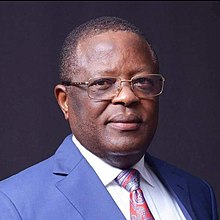Democracy, often described as the government of the people, by the people, and for the people, emphasizes governance centered on the well-being of its citizens. Any policy, regulation, or decision that causes undue hardship contradicts the very essence of democracy. Unfortunately, in Nigeria, the current administration has introduced economic policies that many believe undermine these democratic ideals.
President Bola Ahmed Tinubu, during his inauguration, made the now infamous declaration, “Fuel Subsidy is Gone.” While some praised the move as necessary for economic restructuring, the lack of a comprehensive plan to mitigate its harsh impact on the citizenry left Nigerians grappling with soaring inflation, food insecurity, and rising poverty. Despite widespread outcry, the President has remained firm on this policy, insisting he has no regrets. His recent self-appraisal, where he claimed to have performed excellently in his first year in office, has sparked mixed reactions among Nigerians.
Despite promises to tackle insecurity, Nigeria remains plagued by banditry, terrorism, oil theft, and kidnapping. Boko Haram and other terror groups continue to destabilize parts of the country, while banditry in the northwest has displaced thousands. The government’s inability to provide adequate security undermines economic activities and shatters citizens’ confidence.
The naira’s value has plummeted, with many attributing its devaluation to poor fiscal policies and unchecked corruption. This has increased the cost of goods and services, worsening the plight of everyday Nigerians. Furthermore, rising unemployment and stagnant wages have left many households struggling to survive.
The removal of fuel subsidies has led to increased transportation costs, directly impacting food prices. Farmers in insecure regions face difficulty accessing their farmlands, further reducing agricultural output. The result is a nation where hunger and malnutrition are on the rise.
Nigeria’s power sector remains in a dire state, with multiple grid collapses recorded in recent months. The lack of consistent electricity hampers businesses, stifles innovation, and reduces the quality of life for millions of citizens.
From unresolved corruption cases to delayed justice for victims of crimes, Nigeria’s judicial system has failed to deliver fairness and accountability. Many perceive the system as favoring the elite while neglecting the ordinary citizen.
Despite anti-corruption rhetoric, corruption continues to thrive under Tinubu’s administration. The last general election was marred by allegations of vote-buying, intimidation, and a lack of transparency. These lapses undermine the trust of Nigerians in their leaders and institutions.
President Tinubu’s Christmas message emphasized love, unity, and hope for a prosperous Nigeria. However, these ideals must be matched with policies that genuinely uplift the masses. It is imperative for his administration to:
“The government must intensify efforts to combat insecurity. This includes equipping security forces, fostering community policing, and addressing the root causes of terrorism and banditry, such as poverty and unemployment.
“Economic policies must be tailored to reflect current realities. Subsidies or alternative interventions should be considered to ease the burden on Nigerians. Additionally, efforts should be made to stabilize the naira and create employment opportunities.
“Investment in agriculture, including mechanization and access to credit for farmers, is crucial. Addressing insecurity in farming communities will also boost agricultural output and reduce food prices.
“Fixing Nigeria’s power grid is critical. Renewed investments in infrastructure, coupled with sustainable energy solutions, can provide long-term solutions to Nigeria’s electricity challenges.
“Reforms are needed to ensure the justice system operates without bias. Swift and fair trials will build public trust in the judiciary.
“Promote Transparent Governance:
Tackling corruption and ensuring transparent elections will restore confidence in government institutions.”
For Nigeria to progress, President Tinubu must prioritize the welfare of its citizens. Policies should reflect the economic realities of the masses, not just theoretical projections. Governance is not about rhetoric but actions that positively impact the lives of ordinary Nigerians.
A secure, economically stable, and equitable Nigeria is not an impossible dream. It requires a leadership willing to listen, adapt, and act in the best interest of its people. President Tinubu has the opportunity to create lasting change, but it begins with putting the citizens first.




